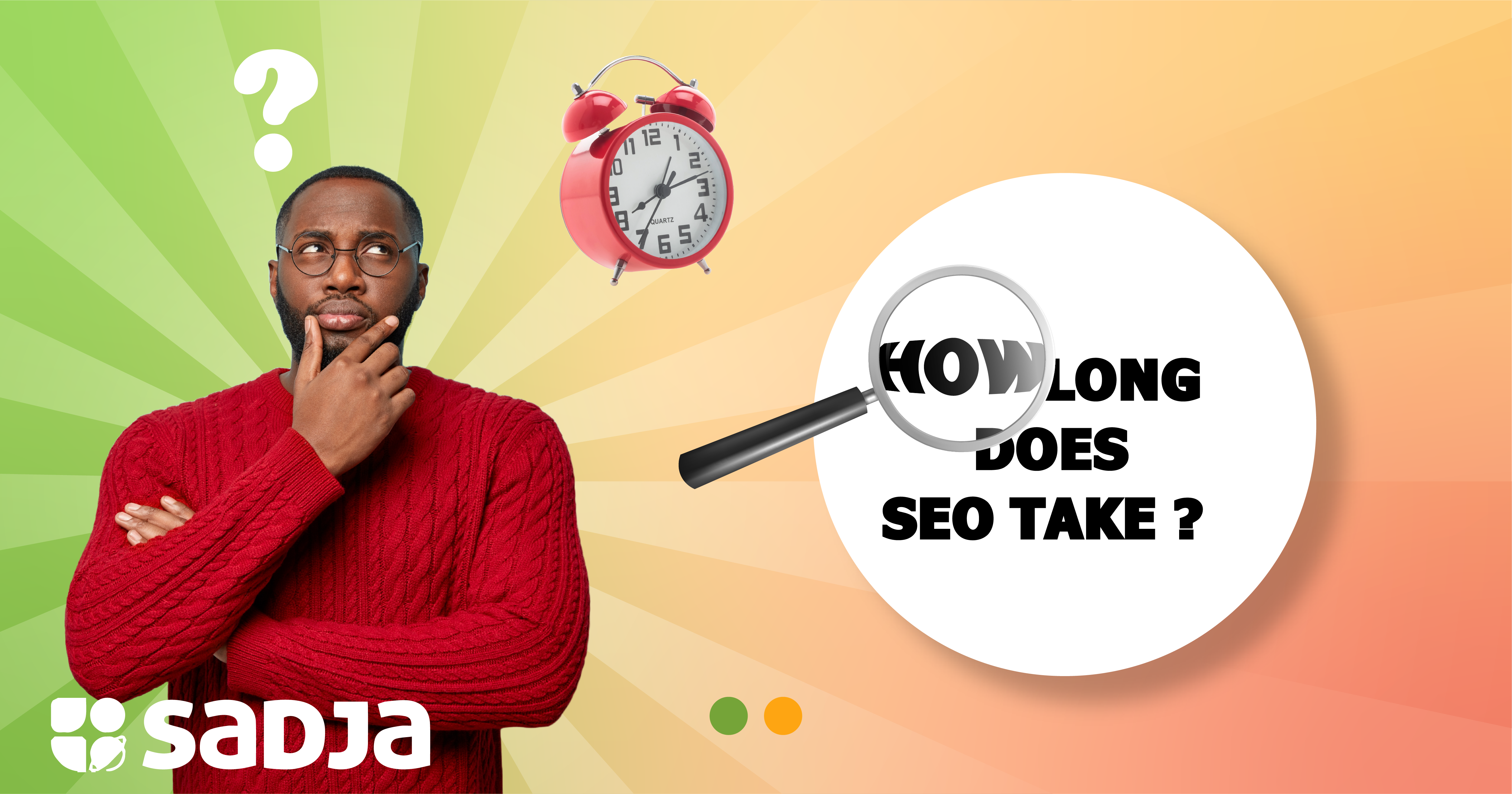The cost of website design in Uganda: a comprehensive review + tips on choosing a competent agency
If you’re interested in launching a new website or are interested in redesigning your current one, you’re probably wondering how to pick the right agency and how much it will cost. This post provides a comprehensive overview of web design costs from some of Uganda’s leading web design agencies and how to choose the right agency for your project.
| Agency | Basic (UGX) | Premium (UGX) |
| Sadja WebSolutions | 1,850,000.99 | 37,000,000.99 |
| One Bit Practical Solutions | 4,815,346.56 | 120,410,280.65 |
| Hustle-free Solutions | 693,869.84 | 2,529,504.34 |
| Loft Uganda | 385,483.24 | 899,460.90 |
| ISI+SOFT Technologies | 4,815,346.56 | 48,153,460.56 |
| Killasites | 500,000 | 1,200,000 |
| Webvator | 500,000 | – |
Note: Prices include hosting
Price Review
Sadja WebSolutions
Sadja WebSolutions is a digital agency that offers custom website design and digital marketing services. They help brands worldwide expand their digital presence and increase the returns on their digital marketing investments through professional development, design, and online marketing. Sadja will design your website to generate relevant leads so you can grow your business. Their web design packages range from $500 to $10000 (UGX 1,850,000.99 – 37,000,000.99). At this price, you’ll get a fully responsive, customizable website, one year of free hosting and domain name registration, and custom email. Other features on offer include unlimited revision requests, easy customization, SEO optimization, multi-language support, online payment integration, and visitor tracking.
One Bit Practical Solutions
One Bit Practical Solutions Limited is a professional agency offering effective, creative solutions. The company prides itself on providing clients successful online and offline branding, up-to-date equipment, and reliable support. OBP offers web design services that focus majorly on usability and function. They also provide their clients with training on how to manage their websites as business assets. Depending on your project’s scope, you’ll be charged between £10000 and £25000 (UGX 4,815,346.5 – 120,410,280.65). Features on offer include graphic design, responsive design, PHP development, WordPress Development, Web development, and Joomla development.
Hustle free solutions
Hustle free solutions are a team of passionate creative who major in graphic and web design. They grow online businesses through affordable, secure, and effective digital solutions.
Hustle free solutions charges between $189 and $689 for a website (UGX 693,869.84 – 2,529,504.34). This covers 1 website domain, 5GB free hosting, personal email, and 3 months of support.
Loft Uganda
Loft specializes in web and user experience design. Their work focuses on the intersection of culture and technology. While the company says it calculates personalized quotes based on each client’s needs, their website lists a few plans that give a general idea of how much it would cost to hire them for a web design project. Their basic plan costs $105 (UGX 385,483.24) and covers responsive design, security, and blog integration. The platinum plan costs $245 (UGX 899,460.90) and includes payment platform integration, cars, and user management systems.
ISI+SOFT Technologies
ISI+Soft is a full-service tech and digital agency founded in 2010. The company offers web design and development ranging from £1,000 – 10,000 (UGX 4,815,346.56-48,153,460.56). Available services include WordPress development, html5, JavaScript, JQuery, Bootstrap, JSON, and CSS3.
Killasites
Killasites is a leading mobile app and website design company. Since it was founded in 2014, the company has completed and delivered high-quality projects for several Ugandan companies. Their basic plan goes for UGX 500,000 and covers Webhosting for a year, domain name registration for a year, and a 5-page static website. The corporate plan starts at UGX1,200,000 and includes a maximum of 30 web pages, Content management system development, social media integration, and web maintenance training.
Webvator
The webvator team is passionate about design. They meet deadlines and pay close attention to detail. Webvator offers web design services that include but aren’t limited to content writing, and advice on layout and functionality. Their basic plan goes for UGX 500,000
Factors that will affect the cost of your website
Domain name registration
A domain name is your website’s internet address – i.e., mycompany.com. While it is an unavoidable expense, the actual cost can vary. Basic “.com” domains go for about $12 a year. Some web hosting platforms offer it free of charge if you buy a hosting package. Other domains, like .ug, can cost much more.
Why domain name registration costs vary
Domain name registrars charge you to cover their expenses. Registrars issue domain names through wholesalers known as registries. Registries, in turn, govern each top-level domain (the section to the right of your domain name like .org, .net, .com, and so on). When you see a particularly expensive domain, it could be because the wholesaler charges more for that name. Some domains have fixed prices agreed upon between registrars and a non-profit regulatory body called the Internet Corporation for Assigned Names and Numbers. ICANN limits the wholesale price for old domain names like .biz and .com, so they are usually inexpensive. However, the regulator does not control costs on newer top-level domains like .shop, .club, and .news. The wholesalers can charge whatever they want for such domain names, leaving them open to the free-market rules of supply and demand. ICAAN also doesn’t restrict the prices on two-letter country domain options like .ug and .us.
Hosting
Hosting is the monthly or yearly charge you pay for the space your site occupies on a webserver. The price ranges from free to hundreds of dollars (for customized packages like managed hosting).
- Shared hosting: $2-16 a month
- Virtual private server hosting: Approx. $420-30 a month
- Dedicated server: $80-130
Note: web hosting fees are usually paid annually
The actual cost for hosting your website will depend on which type it is, the expected number of monthly visitors, and whether you want additional services such as automated backups and personalized email.
A simple WordPress blog, for instance, can do with low-priced shared hosting. However, as that blog grows more popular, it will require more bandwidth and storage space. Knowing which kind of website you need for your brand will make it easier to choose a suitable hosting plan.
There are five standard hosting packages;
Shared hosting
A basic shared hosting plan (starting at about $3) will permit one website, one domain, and about 50 GB of storage. The more expensive ones will allow unlimited domains, storage, and several sites. They also come with additional features such as spam protection, a dedicated IP address, and domain privacy.
VPS hosting
VPS hosting gives you the simulated capabilities of a fully independent server. It is only limited by the restrictions placed on the VPS host account with regard to memory, storage, and processing power.
If your server has 16 CPU cores, 32GB of RAM, and 4 TB of storage, you could have four virtual servers, each with four CPU cores, 8 GB of RAM, and 1TB of storage. While the difference may seem small, VPS is far more powerful than shared hosting. Since you have dedicated server resources, your website can handle more visitors irrespective of the load on other sites sharing the server. Another significant benefit is that you can customize the server. Since the web host has given you a dedicated environment, you can tweak the server’s configuration to your liking. This can’t be done in a shared hosting environment.
It is ideal for sites whose resource requirements exceed those offered by shared hosting. The main difference between VPS and shared hosting is that VPS accounts operate in isolation -i.e., the resources designated for your account can’t be used by another. If another website on the server uses a significant amount of resources, your website will not be affected.
Dedicated hosting
This tier provides a physical server and all its computing resources to a single user. It is ideal for multi-site networks, large eCommerce brands, and large media outlets.
Dedicated hosting starts at $80. Mid-tier hosting plans are priced between $100 and $200, and top tier plans can go for as much as $300.
Cloud hosting
Cloud hosting combines VPS, shared, and dedicated hosting, and enables your website to draw resources from the cloud. This allows it to run without going offline. It works by hosting your site in a virtual environment that draws resources from a shared repository. These resources can scale to meet your website’s load. It’s called “cloud” hosting because your site gets resources from the cloud. With cloud hosting, you’ll get increased security. Since the website is served on a redundant network, it can pull resources from anywhere. It is, therefore, unlikely that it can be harmed by a distributed denial-of-service attack. Any kind of website will benefit from a cloud hosting plan. It is ideal for brands that need low operating costs and high traffic, such as medium and large media outlets.
Cloud hosting costs between $5 and $240 each month.
Site Design
The cost of designing and building your site will vary according to who you hire, and the functionality you want it to achieve.
Overhead: a digital agency must pay salaries, taxes, and several other bills, so it’s going to charge more than an individual designer working at home. That said, a digital agency will have access to specialized software and a multi-disciplinary team, which is more suited to the task. If you don’t need a complex website, hiring a freelancer may offer significant savings. However, you must iron out the details of your contract before the project commences. Will they write the code for your site and design it too? Will they write its content? Will they upload the website’s files to your hosting account? Will they provide support in the future? There are several small but essential details involved in launching and maintaining a website. If you intend to hire a freelancer, make sure they are covered in the price quote.
Time: A website can take months to build, especially if it’s going to have unique functionalities. If you need it sooner than your development team says it can be finished, you’ll have to pay more because they will have to work overtime.
Content development
It’s okay to write your website’s content, many business owners do. However, it is often a mistake. Copywriting is a specialized skill, just like web design. It’s far different from writing an email to your friends or advertising content for a magazine. Your content has a dramatic impact on the performance of your website in search results and conversion rates. If your web design agency expects you to provide content, hire professional content writers.
Search Engine Optimization
Launching your website will not automatically push it to the top of Google’s search results. It’s got to draw the attention of search engines like Google and Bing, and doing so requires search optimization. SEO involves structuring and writing your website in such a way as to make it appealing to both search engines and human visitors. It contributes significantly to the success of your website. SEO is a specialized service, and you will have to pay for it. Though it may appear to be an unnecessary expense, its long-term returns on investment are invaluable. Optimization also involves submitting your website to local and international directories and filling your website’s blog and resource pages with vibrant, helpful content. You can do much of this on your own if you have the time. If you don’t, you may have to hire writers and designers. When it’s offered as an independent service, the prices for SEO range between 200 and 700 dollars a month. The best packages should include a website audit, competitor analysis, content and link analysis, and periodic reports.
How to choose a web design agency
Visit their website: The website an agency builds for its own brand is a good tell of its capabilities, design style, and technical understanding. Do you admire the site? Is the website responsive (does it scale to fit different screen sizes)? Does it match your preferences in terms of ease of use and design aesthetic? It is fine if the site’s plan doesn’t fully match your own style – a competent agency can match your branding guidelines and style requirements. What you need to determine here is that the site looks current and is visually appealing. If your project needs new content, search for engaging, professional content on the agency’s web pages, and blog.
Visit some of the websites they have built. Most agencies provide a portfolio that includes samples of previous work. Are the examples they have listed professional looking and easy to use? Do the clients they have served compare to your company in terms of size?
Call them: discuss your project and schedule a meeting. Pay close attention to how they deal with the call. Are they approachable and friendly? Do they pose questions about your company and the scope of the project? Or do they quickly present a hard sell? You may be working with them for months, so you must get along. Although the person who answers your call might not be the one you deal with the most, he/she still reflects the overall personality of the company’s employees.
After you have arranged a meeting, here are a few questions to ask your potential web design partner, and the answers you should receive.
Have you built any websites for companies in my industry?
Working with a web design company that has expertise in your field will be very helpful. Seeing the sites, they have built for other clients in your industry will give you a clear picture of what to expect from them. On the other hand, there are also benefits to choosing a new company: they will do new competitive research and won’t be influenced by past projects. If the company does not have experience with your industry, ensure it shows a wide range of experience in other sectors.
How do you address user experience in your web design process?
What their answer will reveal: professional agencies understand that excellent user experience is critical to website success, and they will express a belief in user-centric design. Ask about their particular approach and what tactics they intend to deploy to ensure your site’s users have the best possible experience.
What content management system do you work with?
What their answer will reveal: most design agencies use one or two content management platforms. Most websites are built on an open-source platform like WordPress. However, some companies have custom-built in-house systems. Each option has its benefits and drawbacks. A reliable agency should confidently discuss each alternative’s pros and cons to help you make the best decision for your business.
Can I meet your team?
Many design agencies are simply a single individual who subcontracts various parts of the project or a group of freelancers who bid on parts of the work. In such scenarios, asking for a team meeting may cause a plethora of excuses. You’ll want to choose an agency with an in-house team that’s accustomed to collaboration. This will guarantee reliable communication and a smooth workflow.
What steps will the project involve?
Their answer will reveal: A professional design company will quickly and exhaustively describe each part of the process, explain how things work, and what you should expect. While they may not give you a specific timeframe or cost right away, they may offer a range.
Do you offer ongoing internet marketing?
What their answer will reveal: lots of work go into launching a website. However, just as much is required to optimize and promote it and measure its performance. You’ll want to find a web design agency that provides digital marketing, so you can be sure your website will deliver the expected results.
Related questions
Is it worth it to purchase an expensive domain?
Your domain name is your brand. It’s you’re calling card to customers and friends. An asset this important shouldn’t be overlooked. So, even when it seems expensive, it may be worth the cost.
What kind of hosting do I need for my website?
There are about three factors to consider:
- Features
- Support
- Performance
Available features: this covers hosting details like storage size and bandwidth quota, as well as unique add-ons like the ones that come with e-commerce or managed WordPress plans.
Client support: your partnership with your hosting provider will be long, so you should choose one who’s ready to help you rectify server-related problems and render specific assistance with your website, server, or WordPress install.
Sever performance: you should assess your host’s server performance. A fast server will serve your content quicker than a slow one, which is crucial for your success. You may conduct performance tests of your own with services like bitcacha and dotcom-tools or look around for other users’ findings on forums. You’ll also want to check if your provider offers performance enhancements like Content delivery network access and caching.
Note: your web design team should provide advice on the best type of hosting for your website and set it all up. If this isn’t part of the agreement, the tips above will help you find an excellent hosting solution. It is also worth noting that some web design companies offer custom hosting solutions. If this is the case with your agency, follow the advice in this section to evaluate the quality of their hosting services.
 +256 206 300885
+256 206 300885


